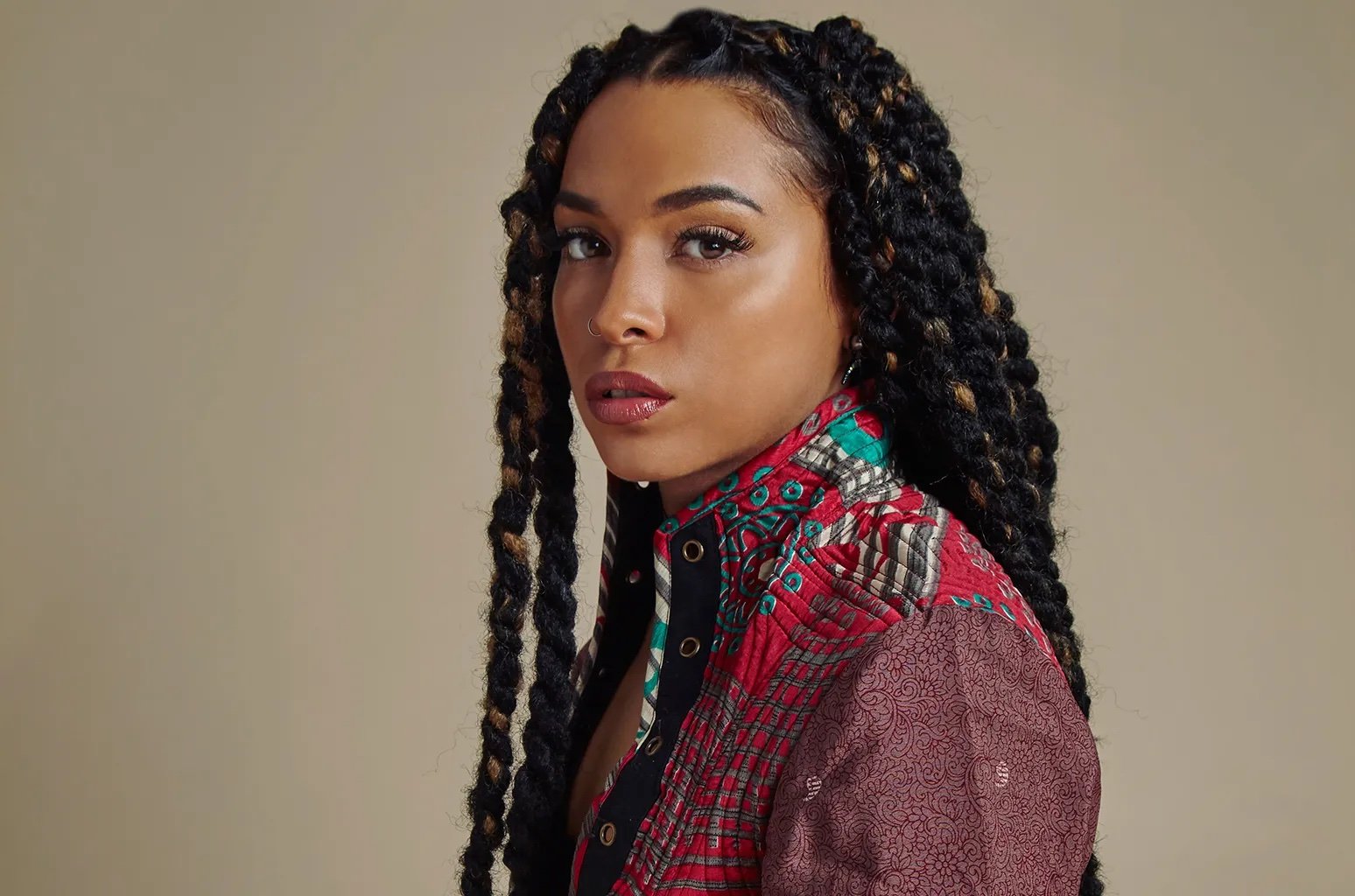First person: Embracing my Afro-Latine identity through music
by Nicole V. BushI am a Queer, Afro-Latine woman.
But I do not speak Spanish. I am nearly six feet tall, and my skin tone is much deeper than the rest of my fairer-skinned, petite Puerto Rican family. Growing up, I considered myself just Black and thought nothing of filling in the "Black non-Latino" option when filling out my school forms as I enrolled in undergraduate studies at Georgetown University. In my early childhood, I lived with my mother, who is a Black woman, and we rarely discussed race, let alone my quarter Puerto Rican heritage.
We lived in Georgia at the time — it would be a few years before J.Lo would date Diddy and Ricky Martin's late 90s resurgence. Because of this, many of my friends had never even heard of Puerto Rico, although it has been a US territory since 1889. My Black and Puerto Rican father also does not speak Spanish, so I never had the opportunity to learn Spanish at home. This used to make me feel like I was not Latine enough. I tried to learn in college but nearly received a C, and instead chose to drop the class because I was embarrassed to potentially get such a low grade, let alone in Spanish, my Grandmother’s native tongue.
“Growing up in the late 90s/early 2000s, I did not have many media representations of other Afro-Latine people, let alone Queer Latine femmes.”
My Puerto Rican Grandmother is my best friend. She always has filled this place in my life. Still, despite this, I considered myself Black and never considered my Puerto Rican identity further. My Grandmother unintentionally reinforced my feelings of not being Latine enough when she jokingly called me a "gringa" while talking to others in Spanish about me. Despite my father begging me not to, I happily permed my “good” hair when I was 15 years old, as I envied the silk-pressed hair of my Black middle school classmates and was not in a place yet to embrace my unruly curls. Growing up in the late 90s/early 2000s, I did not have many media representations of other Afro-Latine people, let alone Queer Latine femmes.
Flash forward nearly a decade to 2019: despite study communications, I tend to be a late adopter of new media platforms, as was the case with Spotify. It was not until that summer I started using Spotify and exploring alternative women's hip-hop. Spotify began sharing music with me from an Afro-Latine artist named Nitty Scott, and I quickly became a stan.
Nitty Scott is the Afro-Latine artist I wished I had when I was a child. She is the media representation I needed.
I felt less alone when I listened to Nitty’s lyrics, where she spoke about the African Diaspora, Queer femininity and shared her considerable trauma that deeply resonated with my own. Tears poured down my face as I listened to her EPs "The Art of Chill (2014)," and “Creature (2017)” and felt so seen by her lyrics and connected to my Afro-Latine identity. The generous Spotify algorithm suggested other Afro-Latine, Queer femme rappers like Princess Nokia and her re-released mixtape 1992 (2017). Princess Nokia and Nitty Scott's music both detail the magic of the island of Puerto Rico and share their relationships with spirituality and the island's Yoruba and Taíno traditions, which also resonated with me as a deeply spiritual woman and healer.
Princess Nokia’s lyrics have empowered me.
I'm that Black a-Rican bruja straight out from the Yoruba/
And my people come from Africa diaspora, Cuba/
And you mix that Arawak, that original people/
I'm that Black Native American, I vanquish all evil/
I'm that Black a-Rican bruja straight out from the Yoruba/
And my ancestors Nigerian, my grandmas was brujas.
— Princess Nokia “Brujas”
I now understand that I am Black and I am Latine. I am both simultaneously, and anyone who says I I am not is misguided. I am Black enough. I am Latine enough. I am enough because I have made this decision for myself. Nitty Scott and Princess Nokia's music has been integral in this evolution. Significantly, I came out as a Queer woman the same summer I started listening to their music. Their bold, passionate lyrics and bass-driven melodies inspired me to live more fully in my truth and expanded my understanding of myself. Listening to their music taught me more about my homeland, our shared struggles, and what it meant to be a Queer, Black Latine femme in our late-stage capitalism moment. The island is magical, and so are we.
I still do not speak Spanish, but I am learning. I am learning to speak Spanish because I want to speak my Grandmother's native tongue. I am learning because I desire to connect more fully with members of my community who do not speak English. I am learning Spanish to connect more with my lineage; however, I understand that learning Spanish will not make me any more Latine than I am now.
When I applied for doctoral studies in the Fall of 2019, I was able to self-identify as Black and Puerto Rican for the first time in my academic career. Previously, I was not given the option to identify in this way. I happily checked both boxes, only to realize in my 2nd year of doctoral studies, my university records listed my race as “other.” This did not sit well with me – I am both Black and Latine – not other.
I have since petitioned the university to update my records to reflect my Black and Latine identity. I am Afro-Latine and refuse to choose between the two ever again.
Dreaming to the beat of the drum all-day/
One with the sun, let it lead my way/
La Hija de la Diaspora, yeah.
— Nitty Scott “La Diaspora”
Nicole V. Bush is a doctoral candidate and content curator at USC Annenberg School for Communication and Journalism who studies Black women’s activism, affective labor, and online social movements.



